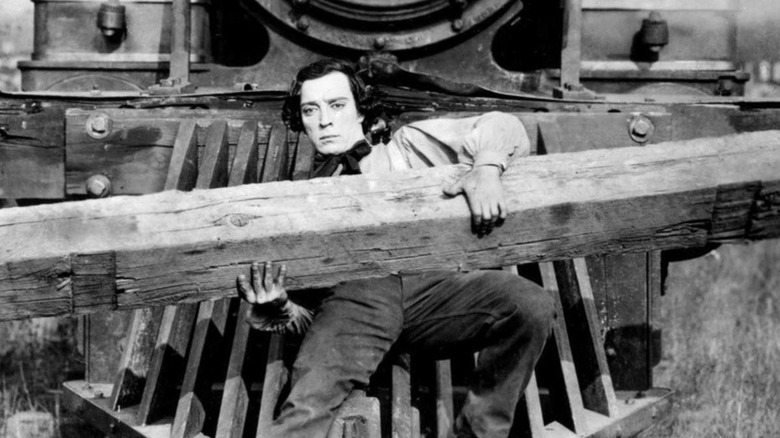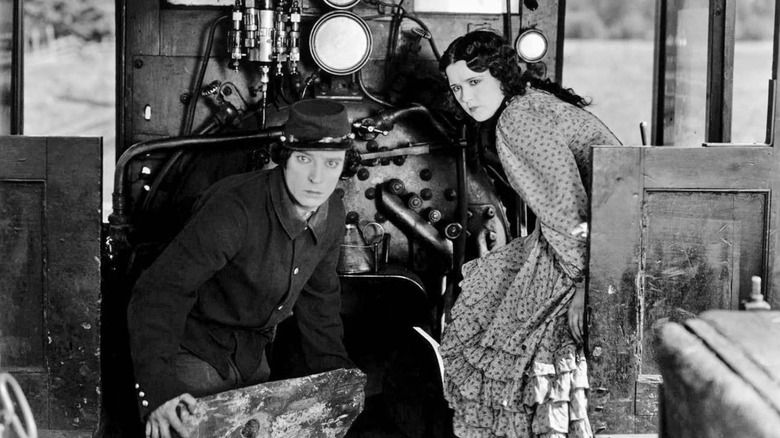Buster Keaton's Most Well-Known Project Was Actually A Flop
If you've taken any film class or read a list describing the best movies to watch before you die, the chances that you've heard of 1926's "The General" are high. Sure, there's a lot that you can criticize regarding its depiction of the Confederacy during the American Civil War, but it still remains a hallmark of physical comedy and of Buster Keaton's career.
However, Keaton's adaptation of William Pittenger's "The Great Locomotive Chase" did not nearly have the same reputation upon release as it does today. When it arrived in theaters, the film received mixed to negative reviews, barely making a profit with a $1 million box office gross. Recently, film critic and author Dana Stevens discussed this drastically different landscape in a 2022 film discussion recapped by RogerEbert.com.
"A lot of people thought 'The General' was an overreach, that he was trying to be too artistic and too ambitious," she explained. "As one Keaton biographer called it, it was 'the "Heaven's Gate" of the 1920s'."
While that might seem like a bit of a reach at first, it actually makes sense if you think about what Keaton had done to achieve the movie in the first place. United Artists claimed that the film had over 3,000 extras while it was filming, and the film's famous train crash itself cost $42,000 of its $750,000 budget. It was a lot to take in for both audiences and the studio, leading to Keaton's devastating decline in the industry.
If you lose this war, don't blame me
Even if "The General" technically turned a profit, that was largely due to overseas viewings, as it allegedly made a paltry $474,264 in the U.S, according to biographer Marion Meade. Even back in the 1920s, this wasn't a great turn-around, and the brutal Hollywood system effectively lost confidence in Keaton's creative liberty.
"Joseph Schenck, Buster's producer and brother-in-law, took him aside and told him it was over, he had to become a contract player," said Stevens during the discussion. "Buster signed at MGM and his career went down very rapidly."
And rapidly it did. According to biographer Rudi Blesh, his contract at MGM was restrictive and unfair, usually resulting in him having very little creative input. He was fired from his contract in 1933, and the rest of his career mostly consisted of starring in and directing two-reel comedy shorts for Educational Pictures and Columbia Pictures. Thankfully, he was slowly able to regain a considerable amount of Hollywood clout as a variety show performer and gag writer, receiving a Honorary Oscar in 1959 before passing away from lung cancer in 1966.
"He was born in 1895 and he died in 1966," said Stevens of Keaton's life. "What a different world he was born into than the world he died in."

